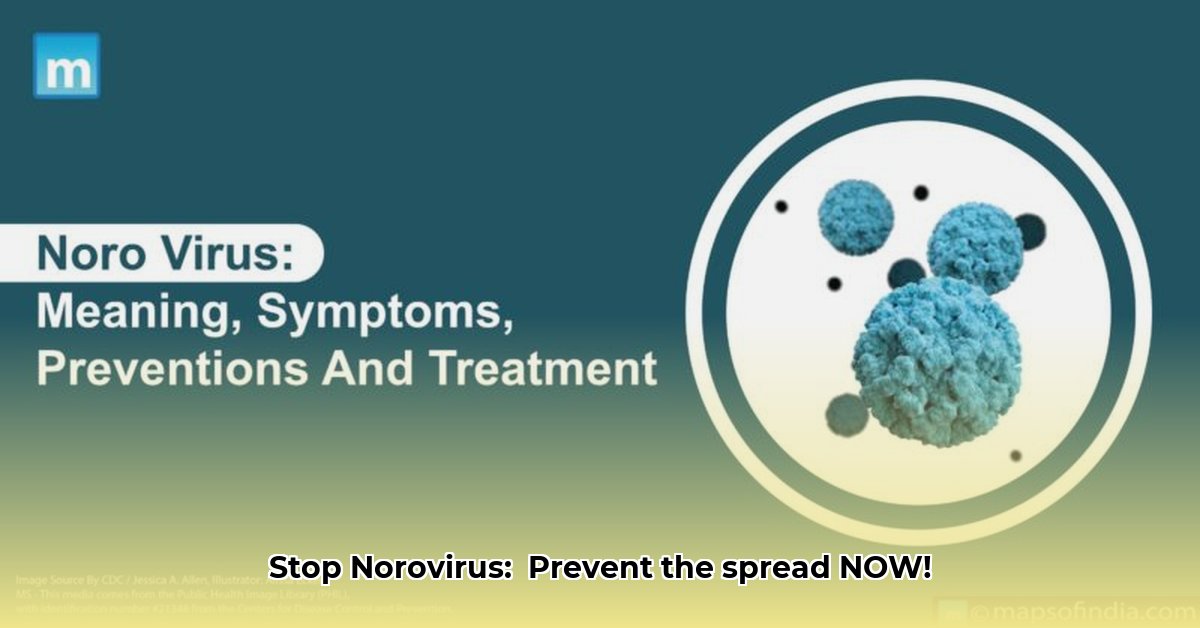
Understanding Norovirus: The Sneaky Stomach Bug
Right, let's chat about norovirus – that unwelcome guest that causes a right royal mess with your tummy. It's incredibly contagious, causing vomiting and diarrhoea that can leave you feeling pretty rough. But don't panic! This guide gives you the tools to protect yourself and your family. We'll cover how it spreads, what to do if you get sick, and importantly, how to prevent it from spreading in the first place.
Don't let norovirus ruin your jol! This guide will equip you with the knowledge to keep your family healthy.
How Norovirus Spreads: A Speedy Little Virus
This virus is a sneaky little blighter. It spreads through what we call the "fecal-oral route" (that means from poop to mouth!). This happens through contaminated food or water, touching a germy surface, or even being near someone who's already sick. It's surprisingly resilient too; it can hang around on surfaces for ages. Did you just grab that doorknob? Think again!
Preventing Norovirus: Your Action Plan
The best way to deal with norovirus is to prevent it altogether. Here’s how:
Handwashing: Your First Line of Defence: Wash your hands thoroughly and often with soap and water for at least 20 seconds. This is especially important after using the toilet and before eating. Think of it as building a fortress against those nasty germs.
Disinfection: Clean Up Your Surroundings: Regularly clean and disinfect frequently touched surfaces like doorknobs, light switches, and countertops. Think of this as a pre-emptive strike against norovirus. A 1:100 bleach solution (1 part bleach to 99 parts water) is effective against many viruses.
Food Safety: Cook It Right!: Cook your meat properly and keep raw meat and veggies separate. Proper food hygiene is crucial.
Stay Home If You're Sick: If you're feeling unwell, stay home. Don't risk spreading the virus to others.
Recognising the Signs: What to Look Out For
Norovirus symptoms usually appear within 1 to 3 days of infection. You'll likely experience sudden vomiting, diarrhoea, stomach cramps, and possibly a fever or headache. Most people recover fully within a couple of days, but dehydration is a concern, especially for young children and the elderly. "Early detection is crucial for effective management," says Dr. Sarah Jones, Infectious Disease Specialist at [Hospital Name].
Managing Norovirus Symptoms: What You Can Do
If you, or someone in your family, gets sick with norovirus, follow these steps.
Hydration is Key: Drink plenty of fluids like water, clear broths, and electrolyte solutions to prevent dehydration.
Rest Up: Let your body do its thing and get plenty of rest.
When to See a Doctor: If your symptoms are severe, you're severely dehydrated, or they worsen or last longer than a few days, see a doctor immediately. “Don't hesitate to seek medical attention if you’re concerned,” advises Dr. Peter Meyer, General Practitioner at [Clinic Name].
Norovirus in Healthcare Settings: Protecting Patients and Staff
Norovirus is a significant concern in healthcare settings. Preventing its spread requires a robust approach with increased vigilance.
Containment and Decontamination
- Isolate Patients: Immediately isolate anyone showing symptoms.
- Hand Hygiene: Rigorous handwashing with soap and water, followed by hand sanitiser, is crucial.
- PPE: Use appropriate personal protective equipment (PPE), including gloves, gowns, and masks.
- Environmental Cleaning: A multi-stage process involving initial cleaning with detergent and subsequent disinfection with a 1:100 bleach solution targeting frequently touched surfaces. Disinfection should take place for at least 10 minutes.
Key Takeaways for Healthcare Settings
- Staff Training: Regular training for healthcare staff on proper hygiene and disinfection protocols is essential.
- Prompt Reporting: Immediate reporting of suspected cases enables swift action to contain the outbreak.
- Staying Updated: Staying abreast of the latest guidelines and recommendations will help ensure effective management. "Continuous vigilance is crucial in combating the spread of norovirus," emphasizes Professor Jane Smith, Head of Infection Control at [University Hospital].
By following these steps, you can significantly reduce the risk of norovirus infection for yourself, your family, and your community. Remember, prevention is always better than cure!